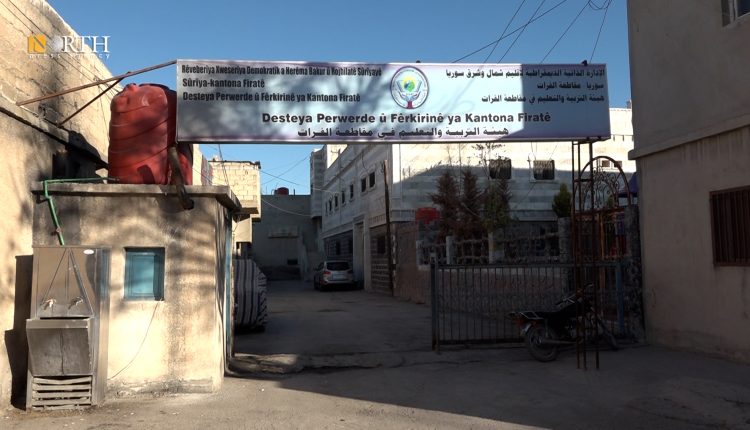Turkish Escalation in Northern Syria Disrupts Education for Over 1,000 Students in Kobani
By Kardo Roj
KOBANI, Syria (North Press) – The recent Turkish military escalation in northern Syria has led to the disruption of education for over 1,000 students in Kobani, coinciding with the commencement of final examinations for the first academic term in Autonomous Administration schools.
Turkey, along with allied Syrian National Army (SNA) factions, has intensified military operations near Kobani following their control over the city of Manbij.
Kamiran Ebih, spokesperson for the Kobani Schools Administration, reported that the attacks, including the targeting of educational institutions in Kobani and Ain Issa, have resulted in the closure of most schools near the front lines over the past week.
The Euphrates region hosts approximately 550 schools, serving around 75,000 students across various educational levels.
Ebih emphasized that the ongoing threats and attacks have significantly impacted students’ psychological well-being, particularly during this critical period of exam preparation and administration.
The Education Authority initiated preparatory level examinations on Thursday, following the commencement of secondary level exams on Wednesday. However, Turkish military threats have prevented students in rural border schools from attending their exams.
The primary concern remains the psychological distress experienced by students during examinations, especially those from villages that have witnessed conflict and displacement, leading to interruptions in their education and communication with teachers.
In response to the escalating violence, some parents have refrained from sending their children to school, prompting the administration to temporarily close certain schools.
The Schools Administration has pledged to consider the challenging circumstances faced by students during this period and plans to reschedule exams for those unable to attend, ensuring they have the opportunity to complete their assessments in the near future.
The recent Turkish military buildup near the Syrian border has raised concerns about a potential incursion into Kurdish-majority areas, including Kobani. U.S. officials have expressed apprehension that such an operation could displace over 200,000 Kurdish civilians in Kobani alone.
The U.S. State Department has acknowledged the fluid situation in northern Syria, particularly around Kobani, and is closely monitoring developments to prevent further escalation. While ceasefires in areas like Manbij have been extended and are holding, the situation remains tense, with the potential for large-scale incursions still present.
The ongoing conflict and military operations have had a profound impact on the civilian population, particularly students whose education has been disrupted. The international community continues to call for de-escalation to prevent further humanitarian crises and to protect the rights of children to access education without fear.
As the situation develops, local educational authorities are striving to adapt to the challenges posed by the conflict, seeking alternative solutions to ensure that students can continue their education despite the disruptions caused by military activities.
The resilience of the Kobani community is evident as they navigate the complexities of living in a conflict zone, with education remaining a critical component of their efforts to maintain a sense of normalcy and hope for the future.

